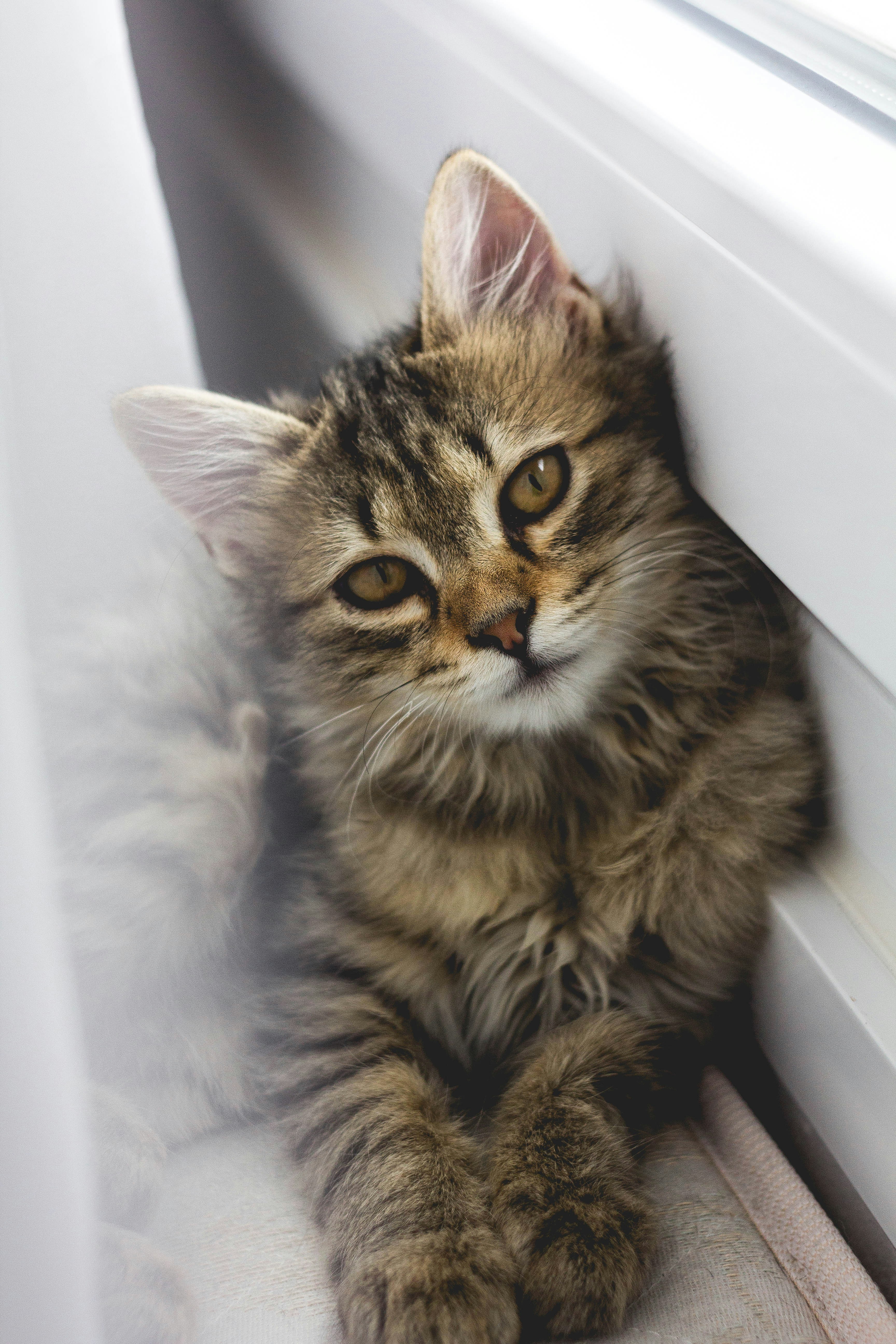You find yourself in a constant state of worry as your beloved feline companion disappears for days on end, leaving you with a mix of uncertainty and concern. It is a perplexing behavior that many cat owners experience, pondering over the reasons behind their furry friend’s mysterious wanderings.
In this article, we will explore the captivating world of a cat’s wandering tendencies, delving into the various factors that contribute to their desire to explore far beyond the confines of a cozy home.
Possible Reasons for Cats Wandering Off
Hunger and Hunting
Cats are natural hunters, and their instincts drive them to explore and hunt for prey. If your cat is wandering off for days, it could be because they are searching for food. Cats may venture far from home in search of small animals to catch and eat. Even if they are well-fed at home, their instinctual hunting drive may still push them to explore their surroundings in the hopes of finding a potential meal.
Territorial Disputes
Cats are territorial creatures, and disputes with other cats in the neighborhood can sometimes lead them to wander off for days. When encountering unfamiliar cats in their territory, conflicts may arise, triggering a need to defend their turf. In some cases, this can result in cats roaming away from home in an attempt to avoid confrontation or find a new territory where they feel safer.
Mating and Reproduction
Another possible reason for cats wandering off for days is the urge to mate and reproduce. Unneutered male cats may roam in search of females in heat, while unspayed females may leave home to find a suitable mate. During mating season, which varies depending on geographic location, cats may travel far from their usual territory in their quest to find a mate. This behavior is more commonly observed in outdoor cats that have not been sterilized.
Seeking Exploration and Stimulation
Cats are curious creatures that crave mental and physical stimulation. If their environment lacks stimuli or becomes monotonous, cats may feel compelled to wander off in search of new experiences and excitement. This can be particularly true for indoor cats, as their restricted living space may not provide enough opportunities for exploration and mental stimulation. By venturing outside, cats can satisfy their curious nature and fulfill their need for adventure.
Fear and Anxiety
Fear and anxiety can also prompt cats to wander off for days. Loud noises, unfamiliar people or animals, or even changes within their own household can trigger a cat’s flight response. When faced with stressful situations, cats may naturally want to escape and find a safe haven. This can result in them running away and staying away until they feel secure enough to return home.
Factors Affecting the Duration of Cat Wanderings
Seasonal Variations
The duration of a cat’s wandering can vary depending on the season. In colder months, cats may be less inclined to roam for extended periods due to the harsh weather conditions. However, during the warmer months, cats are more likely to venture farther from home, taking advantage of longer daylight hours and more favorable weather. Therefore, seasonal variations can play a role in how long a cat stays away from home.
Age and Health
The age and health of a cat can also impact the duration of their wanderings. Older cats or those with underlying health issues may not have the physical stamina or the inclination to explore for extended periods. On the other hand, young and energetic cats may have an insatiable desire for adventure, leading them to wander off for longer periods before returning home.
Neutering or Spaying
Neutering or spaying a cat can have a significant influence on their wandering behavior. Unneutered male cats and unspayed females are more likely to roam in search of mates, potentially extending the duration of their wanderings. However, sterilizing cats can diminish the desire to wander in search of reproductive opportunities, making them more likely to stay closer to home.
Indoor or Outdoor Cats
Whether a cat is primarily kept indoors or allowed outdoor access can also impact the duration of their wanderings. Indoor cats accustomed to a safe and controlled environment may feel less compelled to explore outside for extended periods. Conversely, outdoor cats may have greater freedom to roam and are more likely to engage in longer exploratory adventures before returning home.
Environment and Surroundings
The environment and surroundings in which a cat lives can affect the duration of their wanderings. For example, living in a rural area with ample natural space and wildlife may entice cats to wander off for extended periods. On the other hand, cats residing in urban or densely populated areas may have limited opportunities for exploration, leading to shorter periods spent away from home. Factors such as proximity to busy roads or the presence of other territorial cats can also influence a cat’s willingness to explore beyond their immediate surroundings.
Preventing Cats from Wandering Off
Keeping Cats Indoors
Keeping cats indoors is one of the most effective ways to prevent them from wandering off for days. By providing a safe and stimulating indoor environment, you can ensure that your cat’s needs for mental and physical stimulation are met without the risks associated with outdoor exploration. Creating an enriching environment with plenty of toys, scratching posts, and perches can help keep indoor cats content and entertained.
Providing Mental and Physical Stimulation
Even if you choose to keep your cat indoors, it is essential to provide them with ample mental and physical stimulation. Engage in play sessions with your cat using interactive toys and puzzles to keep them mentally engaged. Additionally, creating vertical spaces and incorporating climbing structures can satisfy their natural instinct to climb and survey their surroundings.
Proper Feeding and Care
Proper feeding and care can help reduce the likelihood of your cat wandering off in search of food or attention. Ensure that your cat’s nutritional needs are met by providing a balanced diet and regular feeding schedule. Taking the time to groom and interact with your cat daily can help satisfy their need for attention and affection, reducing the desire to seek it elsewhere.
Identification and Microchipping
In case your cat does wander off and become lost, proper identification is crucial. Ensure that your cat wears a collar with identification tags containing your contact information. Microchipping your cat is also recommended, as it provides a permanent form of identification that can be scanned by animal shelters or veterinarians if your cat is found. Keep your contact information up to date with the microchip registry to increase the chances of being reunited with your lost cat.
Managing Outdoor Time
If you allow your cat outdoor access, it is important to manage their outdoor time to minimize the risk of long-term wandering. Provide a secure and supervised outdoor enclosure, such as a catio or cat-proof yard, where your cat can safely enjoy the outdoors. Alternatively, consider using a leash and harness when venturing outside with your cat, allowing them supervised exploration while maintaining control and preventing them from wandering too far.
What to Do If Your Cat Goes Missing
Start Searching Immediately
If your cat goes missing, act promptly to increase the chances of finding them. Begin by thoroughly searching your home, including hiding spots and small spaces where they may have become trapped. Cats can sometimes hide for hours or even days without being noticed. Check all rooms, closets, cupboards, and even outdoor structures like sheds or garages. Make comforting noises and call your cat’s name while searching, as familiar sounds may encourage them to come out of hiding.
Inform Local Shelters and Pet Organizations
Contact local animal shelters, rescue organizations, and veterinary clinics to report your missing cat. Provide them with a detailed description and any identifying features of your cat. Share recent photos if possible, as this will aid in identification. Leave your contact information and ask them to reach out if a cat matching your description is found or brought in.
Post Flyers and Notify Neighbors
Create flyers with a clear photo of your cat and relevant information about their disappearance. Include your contact details and distribute these flyers throughout your local area, including community bulletin boards, veterinary clinics, pet stores, and supermarkets. Additionally, inform your neighbors about your missing cat, as they may have seen or heard something that could help in the search.
Utilize Online Lost Pet Databases
Several online platforms and databases are specifically designed to help reunite lost pets with their owners. Register your missing cat’s details on these platforms, including a description, photos, and your contact information. These databases often have extensive networks and can help spread the word to a wider audience, increasing the chances of locating your lost cat.
Reach Out to Social Media and Online Cat Communities
Harness the power of social media and online cat communities to raise awareness about your missing cat. Post about your cat’s disappearance on local community groups, lost and found pet pages, and cat-centered platforms. Share any relevant details, photos, and your contact information. Encourage others to share your post to reach a broader audience and potentially get valuable leads or sightings.
Remember, cats can occasionally wander off for various reasons, and it can be distressing when they don’t return promptly. By understanding the possible reasons behind their wandering, taking preventive measures, and following the appropriate steps if your cat goes missing, you can increase the likelihood of a safe and speedy reunion with your beloved feline companion.




